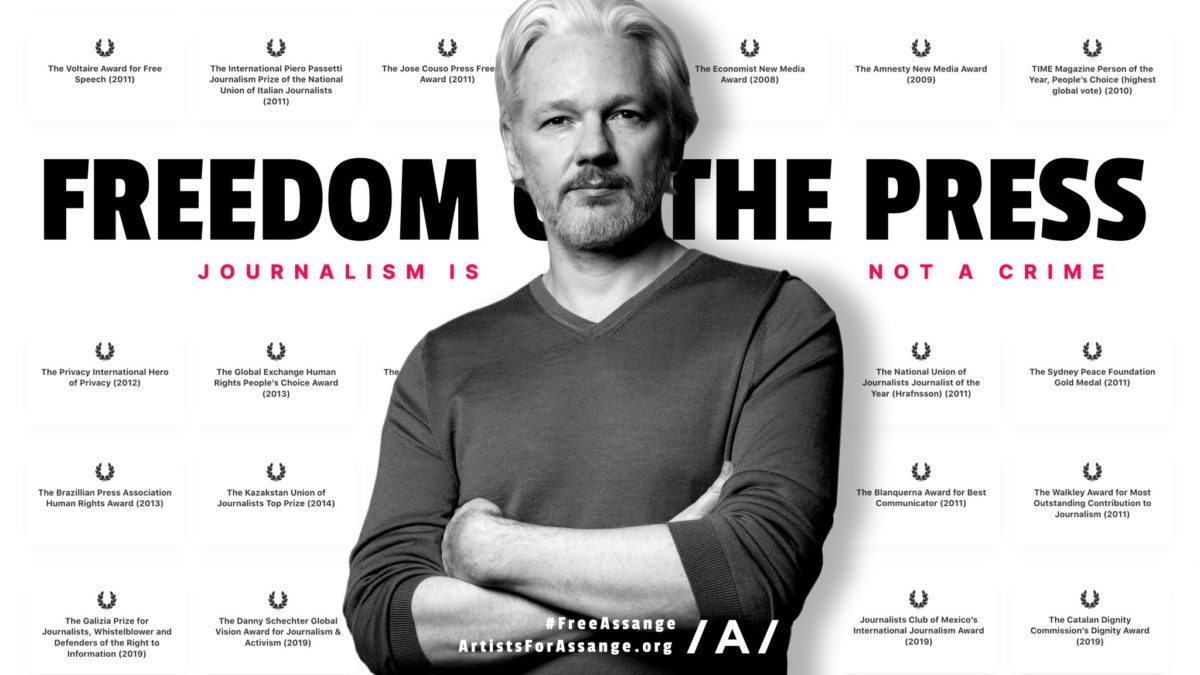An amazing day for Julian, but the judge’s ruling is extremely ominous for press freedom
LONDON — January 4, 2021
A British magistrate today ruled against the U.S. government’s request to extradite WikiLeaks founder Julian Assange for his reporting of leaks from U.S. Army whistleblower Chelsea Manning.
Judge Vanessa Baraitser began today’s hearing by spending more than half an hour rejecting Julian’s arguments and siding with the United States on virtually every aspect of the case. Then, in a shocking turn of events, Baraitser agreed with the defense team’s arguments regarding his mental health and the cruelty of the U.S. prison system. In particular, Baraitser ruled that it would be unjust to subject Julian to “Special Administrative Measures,” which would likely result in his suicide.
The ruling is a mixed blessing. WikiLeaks editor-in-chief Kristinn Hrafnsson said “It is a win for Julian Assange, but it is not necessarily a win for journalism.” Despite ultimately ruling against extradition, Baraitser’s other findings raise serious concerns about the future of press freedom.
Assange’s partner, Stella Moris, spoke outside the courtroom following the ruling. Stella says that she has longed for Julian to return home, and while that day isn’t today, “that day will come soon.” She said that it is concerning that the U.S. has said it will appeal and that it hasn’t withdrawn the indictment. “We will never accept that journalism is a crime, in this country or any other,” she said. “Julian’s freedom is coupled to all our freedoms.”
Among Baraitser’s more ominous findings:
- Assange’s conduct “went beyond that of a journalist”
- The release of unredacted diplomatic cables was “indiscriminate”
- There was insufficient evidence that the charges were “pressurized” by the Trump Administration and instead showed healthy internal debate.
- The UK Extradition Act should take precedence over the U.S.-UK Extradition Treaty, and the former removed the clause barring extradition for political offenses.
- The charges against Assange in the U.S. would be considered offenses in the UK.
- Challenges of the U.S. prosecution’s “overbroadness” and “vagueness” should be made in a U.S. court, not adjudicated in the UK. The judge found no reason to think Assange wouldn’t have constitutional rights when tried in the U.S. — despite ample evidence that the U.S. intends to argue that the Assange lacks First Amendment rights. Baraitser ruled that: “This court trusts that a U.S. court will properly consider Mr Assange’s constitutional right to free speech.”
The judge’s ruling calls for Julian to be immediately “discharged.” The U.S. government immediately requested that Julian be kept in custody while they appeal; the defense requested his immediate release. After a recess, the court reconvened and scheduled a bail hearing for Wednesday, Jan. 6. Julian will remain at HMP Belmarsh until that time.

